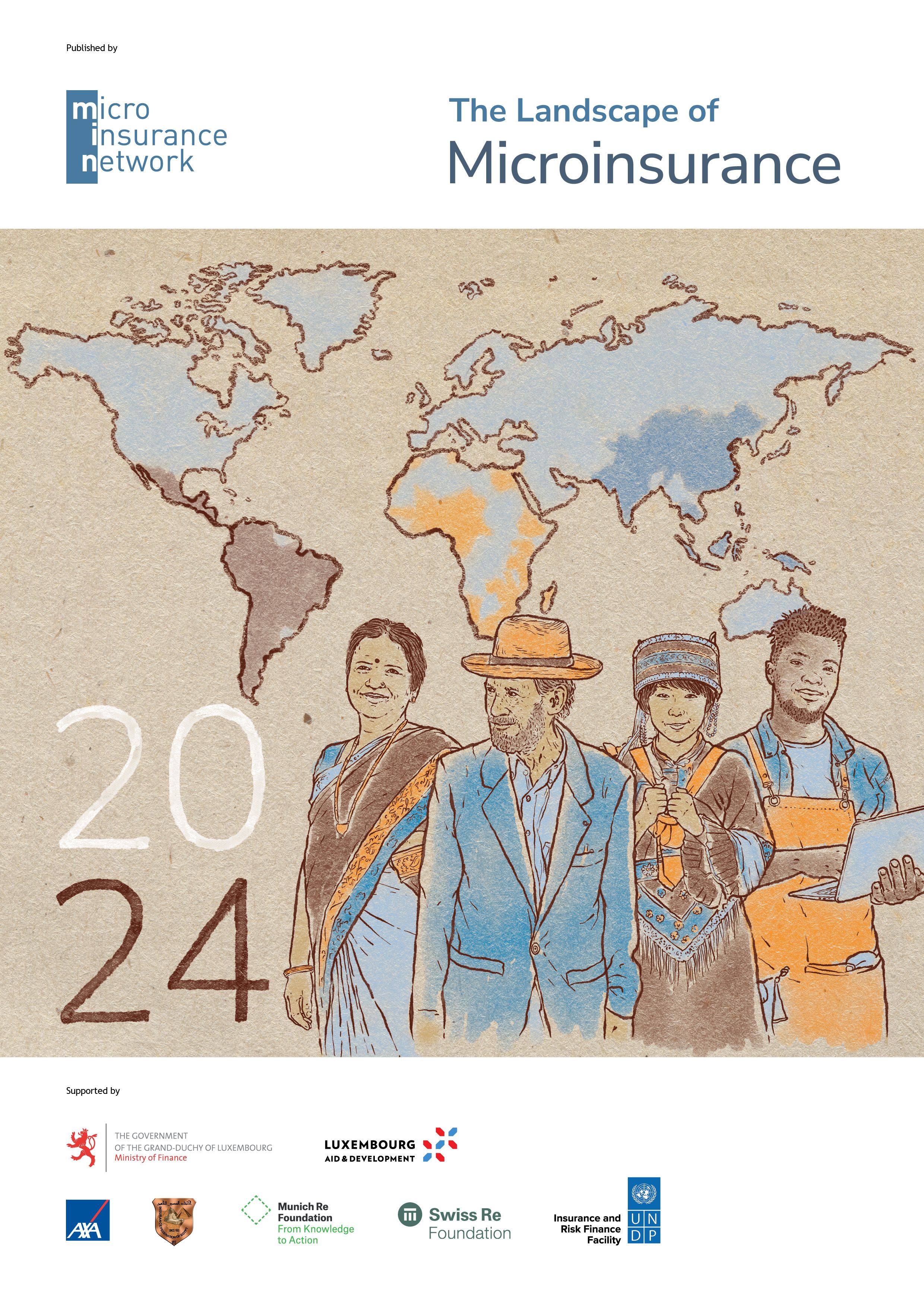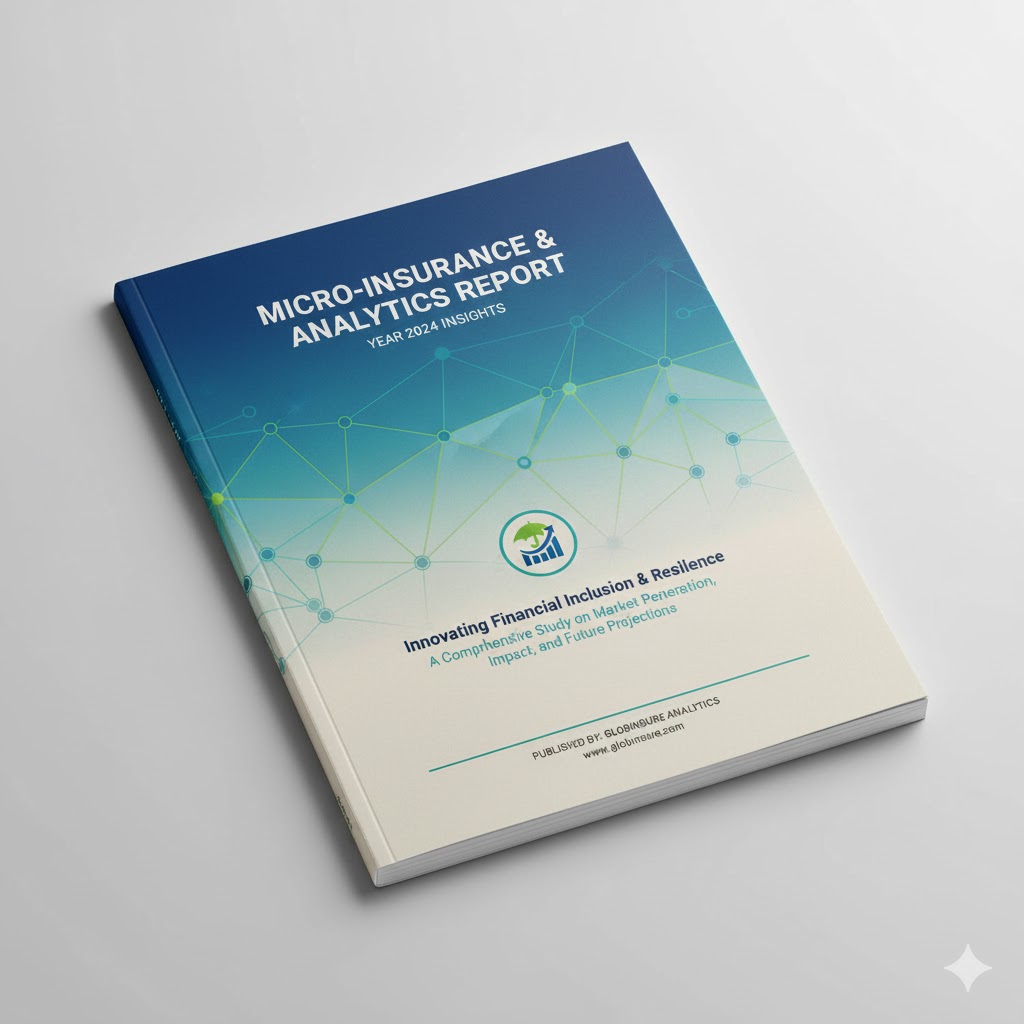Displaying 1 - 12 of 12

The Landscape of Microinsurance 2024
The Landscape of Microinsurance 2024 analyzes the growth and evolution of microinsurance, highlighting its critical role in supporting vulnerable populations facing climate shocks, crises, and financial insecurity. It covers 344 million people across 37 countries, examines regulatory frameworks, distribution channels, and subsidies, and emphasizes the need to close the protection gap while fostering long-term market development.
Date Issued
2024
Topics
Products
Region

Empowering Women, Building Trust: A Case Study of a Women-Centric Insurance Solution in Nigeria
Describes FCMBeta Health, a women-focused micro health insurance product in Nigeria, bundled with micro-loans, offering hospital cash and maternity coverage. Over 90,000 enrolled by 2025.
Date Issued
2025
Topics
Region

IFC Inclusive Business Case Study: MicroEnsure
MicroEnsure bundled insurance with mobile loans and airtime in 15 countries. By 2016, this model had scaled to reach over 40 million clients and included 200+ insurance products. It illustrates a high-impact approach to mobile-enabled microinsurance delivery with large-scale outreach.
Date Issued
2016
Topics
Products

Making a profitable inclusive insurance business: a case study of Britam, Kenya
In 2007, Britam, a Kenyan financial group, launched its first microinsurance product for low-income customers. Over 11 years, Britam built a profitable microinsurance business unit covering more than 700,000 lives by 2017. This case study distills key lessons from Britam's journey to guide other insurers in serving traditionally excluded markets.
Date Issued
2019
Topics
Products
Region

Making climate risk microinsurance work. Case Study: Kenya Agriculture Insurance Program (KAIP) with APA, Kenya
Information on the Kenya Agriculture Insurance Program developed in partnership with APA Insurance. The overview includes pricing structures, government subsidy mechanisms, challenges in implementation, delivery models, and overall performance metrics. The case outlines key lessons learned from executing a national climate risk microinsurance scheme in a Sub-Saharan African context and provides insight into scaling agricultural resilience through public-private collaboration.
Date Issued
2021
Topics
Region

Making Climate Risk Microinsurance Work. Case Study: MiCRO & Aseguradora Rural (AR), Guatemala
Partnership between MiCRO and Aseguradora Rural to deliver parametric climate microinsurance to smallholder farmers and microentrepreneurs in Guatemala through bundled loans.
Date Issued
2022
Topics

MiCRO / SBS / Bancamía – Boosting Resilience for Microentrepreneurs
In 2019, MiCRO and SBS Seguros, in partnership with Bancamía, launched "My Protected Investment", a microinsurance product for SMEs that combines index-based and traditional coverage. Three years after Colombia's first parametric insurance launch, the initiative had already reached almost 120,000 low-income beneficiaries, providing protection against hazards such as excess rain, drought, and earthquakes, while expanding access to underserved urban and rural clients.

Pioneer Microinsurance: Building a Business around Positive Customer Experience Pays Off
Pioneer Microinsurance in the Philippines built a strong customer-centric culture by leveraging client data and insights and embedding customer-focused behaviors across the organization. This approach improved the customer experience, strengthened client value, and drove significant business growth, including higher policy renewals and expanded outreach.
Date Issued
2018
Topics
Products
Region

Skyline Partners: Protecting Jamaican Credit Unions from Tropical Cyclones with FatTrack™ Parametric Insurance: Timely Payouts During Hurricane Beryl
The document presents a case study on Skyline Partners' FatTrack™ parametric insurance solution, designed to protect Jamaican Co-operative Credit Unions (JCCUL) from financial risks associated with major hurricanes. Utilizing independently reported wind field data, the solution offers precise and timely payouts, as demonstrated during Hurricane Beryl.
Date Issued
2025
Topics

The Landscape of Microinsurance 2021
A snapshot of global microinsurance market trends, products, client types and regional performance, based on landscape studies.
Date Issued
2021
Topics
Products
Region

WFP Nicaragua – Insurance and Social Protection: A Key Tool to Increase Resilience and Food Security in Nicaragua
WFP Nicaragua implemented a risk-layered insurance approach through the R4 Rural Resilience Initiative and sovereign CCRIF coverage.
Date Issued
2023
Topics

World Food Programme's Sahel Climate Catastrophe Layer
The document describes the Sahel Climate Catastrophe Layer (SCCL) by the World Food Programme (WFP), a parametric insurance covering vulnerable populations against extreme droughts in Burkina Faso, Mali, and Niger. The initiative enables rapid, pre-financed disaster response, complements national risk financing tools, and strengthens regional climate resilience.
Date Issued
2025
Topics
Region
